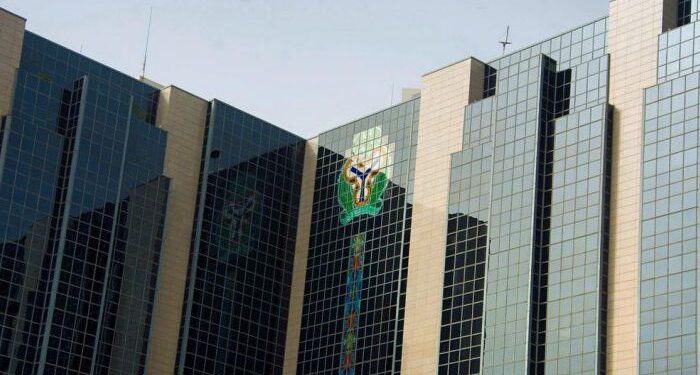The Central Bank of Nigeria (CBN) has injected $1.25 billion into the economy to support fuel imports and other critical sectors, a move aimed at stabilizing the foreign exchange market and ensuring adequate supply of essential commodities. The intervention, which comes amid growing pressure on the naira and persistent energy supply challenges, underscores the apex bank’s renewed efforts to enhance market liquidity and sustain macroeconomic stability.
A senior official of the CBN, who confirmed the development, said the dollar injection was strategically directed toward fuel importers, manufacturers, and key industries that rely heavily on foreign exchange for production and distribution. According to the bank, the measure is part of its commitment to ensuring that critical sectors of the economy continue to operate efficiently despite the volatility in global oil prices and supply chain disruptions.

The official noted that the funds were released to authorized dealers and oil marketers to ease the burden of fuel importation and prevent potential shortages that could destabilize the economy. He explained that the CBN’s intervention was carefully timed to address the widening gap between official and parallel market exchange rates while improving access to foreign currency for legitimate business operations.
“This intervention reflects our continuous commitment to maintaining stability in the foreign exchange market. The CBN recognizes that fuel supply and other essential sectors must remain adequately funded to prevent inflationary pressures and ensure economic recovery momentum is sustained,” the source said.
The dollar injection follows months of volatility in the FX market, where the naira has experienced mixed performance due to increased demand for foreign exchange from importers and investors. Analysts say the CBN’s move will ease market tension and help bridge the liquidity gap that has persisted since the liberalization of the foreign exchange regime earlier in the year.
CBN Governor, Dr. Olayemi Cardoso, has repeatedly emphasized the importance of maintaining market stability through targeted interventions and collaboration with fiscal authorities. Speaking recently at a financial summit in Lagos, he reaffirmed the bank’s commitment to ensuring that vital sectors—particularly energy, manufacturing, and agriculture—receive the necessary foreign exchange support to sustain productivity.
“Our approach remains balanced. While we are committed to market reforms that promote transparency and efficiency, we will not hesitate to intervene when necessary to protect key sectors of the economy. The CBN will continue to monitor developments in the FX market and act decisively to ensure price stability,” Cardoso said.
The apex bank’s decision to prioritize fuel importation comes amid ongoing challenges in Nigeria’s downstream petroleum sector, where fluctuations in global oil prices and foreign exchange constraints have threatened consistent product supply. By providing direct dollar support to importers, the CBN aims to prevent potential fuel scarcity and maintain price stability across the country.
Industry experts have welcomed the intervention, describing it as a timely measure that could avert disruptions in the supply chain. According to oil and gas analyst, Mr. Bala Zubair, the injection will provide short-term relief for importers struggling to access foreign currency at stable rates. “The CBN’s intervention is a necessary step to ensure that importers can meet payment obligations for petroleum products and other essential goods. This move will help stabilize fuel supply and reduce pressure on the black-market exchange rate,” he said.
He, however, cautioned that while such interventions provide immediate relief, long-term solutions must focus on strengthening local refining capacity and reducing dependence on fuel imports. “We must complement monetary actions with structural reforms that address the root causes of FX shortages. The upcoming expansion of the Dangote Refinery and ongoing modular refinery projects could significantly reduce our reliance on imported fuels,” Zubair added.
Financial experts also believe that the CBN’s $1.25 billion injection will have a positive ripple effect on inflation and investor confidence. By improving liquidity in the FX market, the measure is expected to moderate import costs, stabilize consumer prices, and support businesses reliant on foreign inputs.
Economist and investment strategist, Dr. Obinna Anyanwu, stated that the injection could ease inflationary pressures caused by high import costs. “Foreign exchange scarcity has been one of the major drivers of inflation. By providing targeted support to key sectors, the CBN can slow price increases and restore balance to the economy,” he said.
The intervention aligns with the Federal Government’s broader economic stabilization strategy, which includes fiscal reforms, improved revenue generation, and enhanced collaboration between monetary and fiscal authorities. The government has pledged to maintain open communication with the private sector to ensure that foreign exchange allocations are efficiently utilized and directed toward productive ventures.
In recent months, the CBN has intensified its foreign exchange management reforms by clearing outstanding FX backlogs owed to airlines, manufacturers, and other investors. The apex bank also strengthened its surveillance of the FX market to curb speculative activities and ensure that interventions achieve maximum impact.
Market analysts say that while the $1.25 billion injection will temporarily strengthen the naira, sustained improvement in the FX market will depend on increased export earnings, diaspora remittances, and stable oil production. They argue that consistent inflows from these sources will enhance long-term market confidence and reduce the need for frequent central bank interventions.
As part of its future outlook, the CBN has reiterated its commitment to implementing measures that promote economic resilience, including expanding access to credit, supporting non-oil exports, and strengthening financial inclusion. The apex bank maintains that stability in the FX market remains critical to achieving broader macroeconomic goals such as low inflation, sustainable growth, and job creation.
With this latest $1.25 billion injection, the CBN continues to demonstrate its proactive approach to managing Nigeria’s foreign exchange challenges and ensuring that key sectors—particularly fuel and manufacturing—remain adequately supported to drive economic recovery and national stability.
Support InfoStride News' Credible Journalism: Only credible journalism can guarantee a fair, accountable and transparent society, including democracy and government. It involves a lot of efforts and money. We need your support. Click here to Donate
